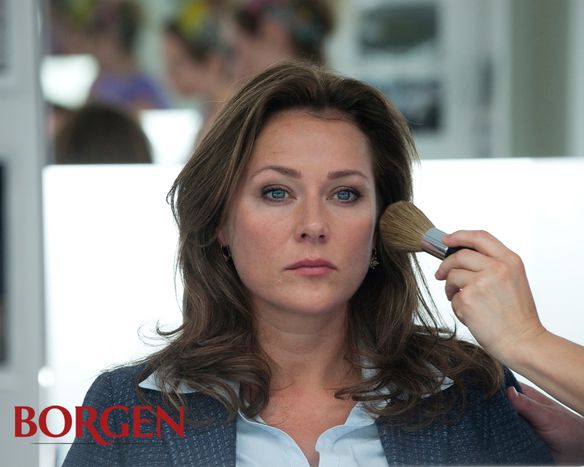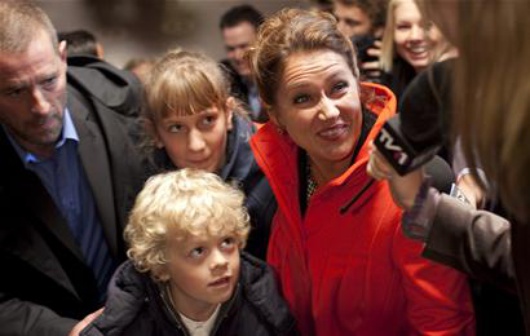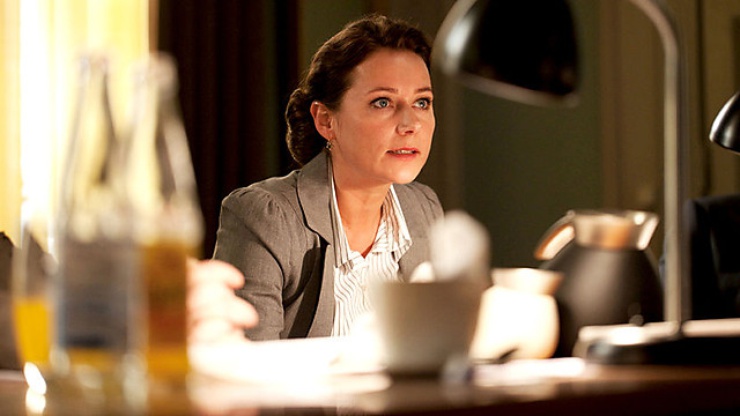
Danish TV political drama 'Borgen': one to keep watching
Published on
Translation by:
lydia nockelsDenmark has become an authentic export machine for fictional television. After the success of 'The Killing', which was adapted into an American version, its producers created a drama about national politics which has won the hearts of European critics and a 2012 British international TV series award
Produced by the DR/ Danish broadcasting corporation, Borgen first appeared on Danish screens on the television channel DR1 in 2010. In 2011 the BBC acquired the broadcasting rights and gave the show English subtitles, bringing it into millions of peoples’ homes. On 9 FebruaryArte, a Franco-German channel, broadcasted the first two episodes of series one. By then, French newspaper Le Monde had already teased the public. But, who is interested in Danish politics?
Power, politics and press troika
The series tells the story of the first female prime minister in the history of the country and her rise to power. She encounters multiple problems when making agreements with other parties in parliament, and through more than one argument with the media. Her electoral victory forms the basis of this story: power, politics and the press, a troika which affects the future of the country. (Coincidence or not a woman, Helle Thorning-Schmidt, became the prime minister of Denmark in 2011.)
Deception, scandal, secret pacts, the fight for power, what you can say, what you can’t say, what you have to ignore, the need to control the media... deals made with journalists are behind most political decisions in the series. There seems to be little importance of the public interest. The character of Brigitte Nyborg, played by Sidse Babett Knudsen, tries to keep her principles intact when she arrives at the head of this chaos. As the leader of the moderate party, she seems to be the prime minister which the whole country wants.
 However, the fact that she is a woman is, even in a relatively modern country like Denmark, a handicap. She is married to a handsome university lecturer and they have two young children, but she starts to see them less and less in her daily life. She is focussed on her political career after having made a pact with her husband that he would slow down his own career to look after the children. Nyborg is beautiful, intelligent, hardworking and a born-fighter with amazing negotiating abilities. Before anything else though, she is a normal woman just like any other. For example at the beginning of the show, it seems strange to see her worrying about her physical appearance. After long days at work she tries to come home in time to help her children with their homework, read stories to them, clear the table and keep the passion between her and her husband burning.
However, the fact that she is a woman is, even in a relatively modern country like Denmark, a handicap. She is married to a handsome university lecturer and they have two young children, but she starts to see them less and less in her daily life. She is focussed on her political career after having made a pact with her husband that he would slow down his own career to look after the children. Nyborg is beautiful, intelligent, hardworking and a born-fighter with amazing negotiating abilities. Before anything else though, she is a normal woman just like any other. For example at the beginning of the show, it seems strange to see her worrying about her physical appearance. After long days at work she tries to come home in time to help her children with their homework, read stories to them, clear the table and keep the passion between her and her husband burning.
Secret in the plot
Borgen's script is so well written and well directed that it progresses quickly, without boring you for even one second. The precise dialogue require the audience's full attention. It shows that in politics, although the main thing should be about staying in power and not falling from it - depending on the party you belong to - it has more to do with beating your rival with a scandal. The location choices represent the different places of interaction and meetings. The parliament (which is called 'borgen' in Denmark) houses the prime ninister’s office (which she travels to by bicycle). The leaders of the different parties pass through here. The set and the scripts from the leading Danish TV channel are also representative of the country’s politics ('You can’t trust anybody' is repeated more than once). Birgette’s house is in the outskirts of the Danish capital, showing a series of big open spaces with few divisions between the rooms. In Copenhagen, the pace of life seems to be more consistent and less hurried than in southern Europe.

During each one-hour episode, we see the day-to-day running of a frail governmental team which runs the risk of collapsing like a house of cards from the slightest enemy attack. It also teaches us that gender equality is far from being achieved even in the exemplary Nordic countries. Can Birgitte Nyborg forge a successful political career without giving up her personal life? The last episode in the first series seems to start to answer this; however, this question would probably not arise if the successful prime minister were male.
Why watch Borgen?
Borgen is a must-see because it brings a maturity and innovation to the usual boring television scene. It shows that the Danes also know how to produce great quality television in Europe, although it might be inspired by the United States (it isn’t beneath Adam Price, Borgen’s creator, to admit that his show was influences by others such as The West Wing). Audiences are still big fans of the show, and my (inexistent) Danish has dramatically improved. Borgen, along with The Killing from the same producers, has set the bar very high for European fictional television. This has already been put into practice with the Swedish-Danish coproduction of The Bridge/ Bron. While waiting to see if it will live up to the previous series, we can thank the creators of Borgen for reminding us that truth still exists in politics, even if only in the world of fiction. Tak!
Read this article and more in cafebabel.com's blog Eurosoap
Images: main (cc) official BBC page for Borgen; in-text courtesy of © Danish DR1 official page of Borgen/ videos (cc) arrowvideouk; (cc) freshfilm/both via youtube
Translated from Poder, ambición y “Borgen”: ficción danesa no apta para incrédulos



